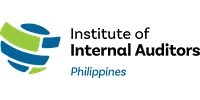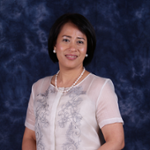Event Details
Focus and Features
A strong ethical culture is the foundation of good organizational governance. An ethical culture is created through a robust ethics program that sets expectations for acceptable behavior within an organization and by its external partners. It includes effective board oversight, a strong tone-at-the-top, and organization wide commitment, as well as a customized code of conduct; ethics training, communications, and system monitoring; and an incident reporting system.
Are you prepared to assess your organization for policies and processes concerning ethics?
This course is a good place to start. It provides a comprehensive overview of the elements of organizational ethics and the responsibilities for establishing and maintaining an ethical climate in an organization. Explore the roles of internal audit and compliance departments in supporting and assessing the ethical climate, examine approaches to auditing ethics, and determine the best approaches for reporting the results of an ethics audit.
Course Objectives
- Understand the elements of organizational ethics and the responsibilities for establishing and maintaining an ethical climate in an organization.
- Explore internal audit's role in supporting and assessing the ethical climate.
- Be informed about approaches to auditing the ethical climate of an organization.
- Prepare to apply concepts of ethics to internal audit programs and engagements.
- Determine the best approaches for reporting the results of an organizational ethics audit.
- Examine ways to shift the ethical climate based on the results of an organizational ethics
What You Will Learn
Applying the IPPF When Assessing Ethics
- The Standards associated with ethics.
- Organizational ethics and the elements of the ethical climate.
- The responsibilities of stakeholders in upholding the organization's ethical climate.
- Utilizing a maturity model to gauge the ethical climate of an organization.
Considerations When Assessing Ethics
- Internal audit's role in assessing the ethical climate of an organization.
- Considerations for auditing ethics.
- Potential processes and techniques for auditing ethics.
Reporting Organizational Ethics Audit Results
- Suggested approaches for sharing the results of an organizational ethics audit.
- Making changes to the ethical climate based on the results of an organizational ethics audit.
Who Should Attend
This course will benefit internal auditors at all levels audit managers, compliance personnel, and all others desiring the skills to assess ethics-related programs. It delivers a fundamental understanding of ethics, and how to conduct an audit assessment of an organization's ethical climate and culture.
Number of CPE: 3
Privacy Notice: We collect your personal information to register you in our training/ membership events and photos/videos will be taken for evidentiary purposes in relation to IIAP Seminars. We will use this information to provide services regarding your attendance and if you agree, to send you marketing information.
By giving us your personal information you consent to our use of it for the purposes described in this Privacy Notice.




